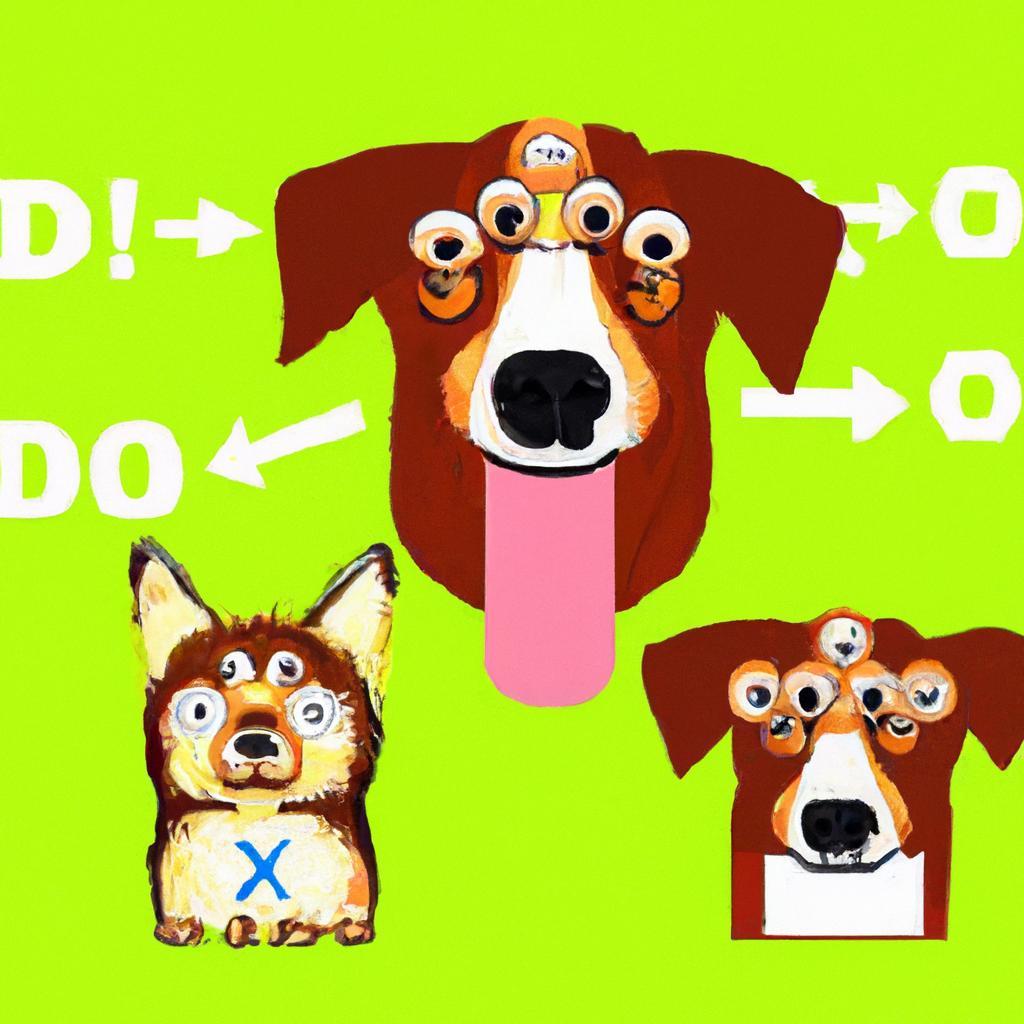In a bustling park, two dogs, Max the Border Collie and Bella the Poodle, faced off in a friendly challenge. Max, known for his agility and herding skills, effortlessly navigated an obstacle course, while Bella showcased her ability to solve puzzles and follow complex commands. As onlookers debated, a trainer stepped in, revealing that intelligence in dogs isn’t just about tricks or speed. It’s about adaptability and problem-solving. Ultimately, both Max and Bella excelled in their unique ways, proving that intelligence in dogs comes in many forms. So, which dog has more IQ? Perhaps it’s not about who’s smarter, but how we appreciate their unique talents.
Contents
- Understanding Canine Intelligence: Key Factors That Define IQ in Dogs
- Comparative Analysis of Top Dog Breeds Known for High Intelligence
- Training Techniques to Enhance Your Dogs Cognitive Abilities
- Choosing the Right Breed: Recommendations for Intelligent Companions
- Q&A
Understanding Canine Intelligence: Key Factors That Define IQ in Dogs
When it comes to assessing canine intelligence, several key factors come into play that help define a dog’s IQ. One of the most significant aspects is problem-solving ability. Dogs that can navigate complex tasks, such as opening doors or finding hidden treats, demonstrate a higher level of cognitive function. This skill not only showcases their intelligence but also their adaptability to various environments and situations.
Another crucial element is trainability. Dogs that respond quickly to commands and can learn new tricks with minimal repetition are often considered more intelligent. Breeds that excel in obedience training, such as Border Collies and Poodles, highlight the importance of this factor. Their eagerness to learn and ability to retain information are strong indicators of their intellectual capabilities.
Social intelligence also plays a vital role in determining a dog’s IQ. This includes their ability to understand human emotions and respond appropriately. Dogs that can read body language, react to their owner’s mood, and even provide comfort during stressful times exhibit a high level of emotional intelligence. This trait is particularly evident in breeds known for their companionship, such as Golden Retrievers and Labrador Retrievers.
Lastly, instinctive intelligence should not be overlooked. This refers to the innate skills that certain breeds possess, which are often linked to their historical roles. For example, herding breeds like Australian Shepherds have a natural ability to manage livestock, while hunting breeds excel in tracking and retrieving. Recognizing these instinctual talents adds another layer to our understanding of canine IQ, as it reflects the unique capabilities that different breeds have developed over generations.
Comparative Analysis of Top Dog Breeds Known for High Intelligence
When it comes to canine intelligence, certain breeds consistently rise to the top, showcasing remarkable problem-solving abilities, trainability, and adaptability. Among these breeds, the **Border Collie** stands out as a paragon of intelligence. Renowned for their herding instincts, Border Collies excel in obedience and agility tasks, often outperforming other breeds in competitive settings. Their keen ability to understand commands and their eagerness to please make them a favorite among trainers and dog enthusiasts alike.
Another breed that deserves recognition is the **Poodle**, which comes in three sizes: standard, miniature, and toy. Poodles are not only known for their hypoallergenic coats but also for their exceptional intelligence. They rank high in obedience and are quick learners, making them ideal candidates for various canine sports and service roles. Their versatility and ability to adapt to different environments further enhance their reputation as one of the smartest dog breeds.
The **German Shepherd** is another breed that exemplifies high intelligence and loyalty. Frequently employed in police and military roles, German Shepherds are celebrated for their trainability and protective instincts. Their ability to learn complex tasks and follow commands with precision makes them invaluable in various working capacities. This breed’s intelligence is complemented by their strong work ethic, making them not only smart but also highly dependable companions.
Lastly, the **Golden Retriever** rounds out this elite group of intelligent breeds. Known for their friendly demeanor and eagerness to learn, Golden Retrievers are often used as therapy and assistance dogs. Their intelligence shines through in their ability to understand human emotions and respond accordingly. With a natural affinity for training, they excel in obedience and agility competitions, proving that intelligence can be paired with a loving and gentle temperament.
Training Techniques to Enhance Your Dogs Cognitive Abilities
Enhancing your dog’s cognitive abilities is not just about teaching them tricks; it’s about engaging their minds in a variety of stimulating activities. One effective technique is **positive reinforcement training**, where you reward your dog for desired behaviors. This method not only strengthens the bond between you and your pet but also encourages them to think critically about their actions. By using treats, praise, or playtime as rewards, you can motivate your dog to learn and solve problems more effectively.
Another powerful approach is **interactive play**. Games that require your dog to think, such as hide-and-seek or puzzle toys, can significantly boost their mental agility. These activities challenge your dog to use their senses and problem-solving skills, making learning fun and engaging. Incorporating a variety of games into your routine can keep your dog mentally stimulated and eager to learn, ultimately enhancing their cognitive functions.
Socialization is also crucial for cognitive development. Exposing your dog to different environments, people, and other animals can help them adapt and learn to navigate various situations. Group training classes or dog parks provide excellent opportunities for social interaction, allowing your dog to observe and learn from their peers. This exposure not only builds confidence but also encourages critical thinking as they assess and respond to new stimuli.
Lastly, consider incorporating **obedience training** into your dog’s routine. Teaching commands such as “sit,” “stay,” and “come” not only establishes good behavior but also requires your dog to focus and think. Regular practice of these commands reinforces their understanding and sharpens their cognitive skills. By consistently challenging your dog with new commands and tricks, you can foster a lifelong love of learning and mental engagement.
Choosing the Right Breed: Recommendations for Intelligent Companions
When it comes to selecting a canine companion that not only brings joy but also engages your intellect, certain breeds stand out for their remarkable intelligence. These dogs are not just pets; they are partners in learning and exploration. If you’re looking for a breed that can keep up with your mental stimulation needs, consider the following options:
- Border Collie: Renowned for their herding abilities, Border Collies are often regarded as the smartest dog breed. Their capacity to learn commands quickly and their eagerness to work make them ideal for active owners who enjoy training and engaging in various activities.
- Poodle: Available in standard, miniature, and toy sizes, Poodles are not only intelligent but also incredibly versatile. They excel in obedience training and are known for their problem-solving skills, making them perfect for families who appreciate a dog that can adapt to different environments.
- German Shepherd: This breed is synonymous with loyalty and intelligence. German Shepherds are often employed in police and military roles due to their ability to learn complex tasks and commands. They thrive on mental challenges and are excellent companions for those who enjoy outdoor adventures.
- Golden Retriever: Known for their friendly disposition, Golden Retrievers are also highly trainable. Their intelligence shines through in their ability to perform various tasks, from assistance work to agility competitions, making them a fantastic choice for families and active individuals alike.
In addition to these breeds, there are others that exhibit high levels of intelligence and adaptability. When choosing a dog, consider your lifestyle and the amount of time you can dedicate to training and socialization. Intelligent breeds often require more mental stimulation and physical activity, so it’s essential to match their needs with your own capabilities. Here are a few more breeds to contemplate:
- Doberman Pinscher: Known for their loyalty and protective nature, Dobermans are also highly intelligent and trainable. They thrive in environments where they can engage in activities that challenge their minds.
- Shetland Sheepdog: This breed is not only adorable but also incredibly smart. Shelties are quick learners and excel in obedience training, making them great companions for those who enjoy teaching their dogs new tricks.
- Rottweiler: Often misunderstood, Rottweilers are intelligent and eager to please. With proper training and socialization, they can be both loving family pets and formidable protectors.
- Australian Cattle Dog: This breed is known for its work ethic and intelligence. They require a lot of mental and physical stimulation, making them perfect for active owners who enjoy outdoor activities.
Ultimately, the right breed for you will depend on your lifestyle, preferences, and the amount of time you can invest in training and companionship. Intelligent dogs not only provide loyalty and affection but also challenge you to engage with them on a deeper level. By choosing a breed that aligns with your interests and activity level, you can ensure a fulfilling relationship that benefits both you and your canine companion.
Q&A
-
Which dog breeds are considered the smartest?
According to canine intelligence rankings, breeds like the Border Collie, Poodle, and German Shepherd consistently top the list. These breeds excel in obedience, problem-solving, and adaptability, making them ideal companions for training and various tasks.
-
How is a dog’s IQ measured?
Dog IQ is typically assessed through their ability to learn commands, solve problems, and perform tasks. Tests may include measuring how quickly a dog can learn new commands or how effectively they can navigate obstacles. The more quickly and accurately they respond, the higher their perceived intelligence.
-
Does a higher IQ mean a better pet?
Not necessarily. While a higher IQ can indicate a dog’s ability to learn and follow commands, the best pet for you depends on your lifestyle and preferences. Some lower-IQ breeds may offer more companionship and affection, making them equally valuable as pets.
-
Can training improve a dog’s IQ?
Yes! Regular training and mental stimulation can enhance a dog’s cognitive abilities. Engaging them in activities like obedience training, agility courses, or puzzle toys can help develop their intelligence and strengthen the bond between you and your dog.
while intelligence in dogs can vary widely among breeds, understanding their unique capabilities allows us to appreciate their value beyond mere IQ. Embrace the diverse talents of all dogs, as each one brings joy and companionship to our lives.

大家好,我是彼得潘,專業的手法身體治療師。我喜歡探索和研究各種主題,並透過與人工智慧的合作分享專業、實用、有趣的文章。我們定期進行人工審核,以確保內容的準確性。如果您發現文章中有任何不準確的地方,請隨時與我們聯繫,我們會及時糾正。您可以透過 [email protected] 與我們聯繫。



